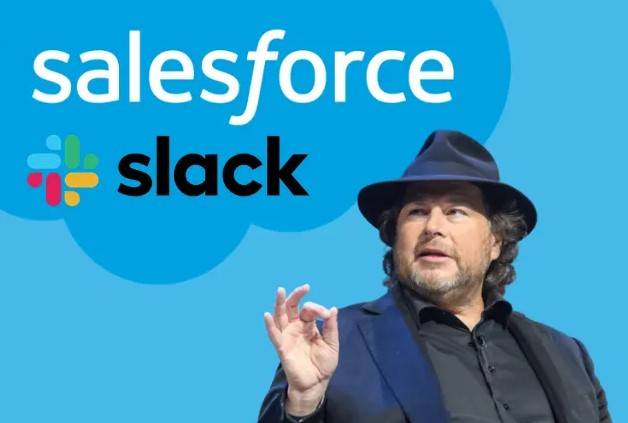Salesforce to buy Slack in $27.7b software megadeal

Stay tuned with 24 News HD Android App

Salesforce on Tuesday announced a $27.7 billion deal to buy online collaboration firm Slack, giving the business software giant a broader array of tools as the pandemic fuels a remote work trend.
San Francisco-based Salesforce will mesh Slack messaging technology with its platform for managing marketing and sales teams.
"Together, Salesforce and Slack will shape the future of enterprise software and transform the way everyone works in the all-digital, work-from-anywhere world," Salesforce chief executive Marc Benioff said in a release.
The deal gives Salesforce the popular workplace messaging software developed by Slack, which has faced increased challenges during the coronavirus pandemic from video-based services such as Zoom.
Slack co-founder and chief executive Stewart Butterfield said: "As software plays a more and more critical role in the performance of every organization, we share a vision of reduced complexity, increased power and flexibility, and ultimately a greater degree of alignment and organizational agility."
The deal is expected to close next year pending shareholder and regulatory approval.
- Battling a 'behemoth' -
A core reason for the acquisition is to keep pace with "cloud behemoth" Microsoft and its popular productivity tools including Office 365 and Teams online collaboration service, according to Wedbush Securities analyst Dan Ives.
Microsoft offerings that were already widely used by businesses have gained even more popularity due to a remote work trend accelerated by the pandemic, Ives said.
Salesforce and Microsoft have long competed when it comes to services or software for businesses to gain and keep customers, said analyst Patrick Moorhead of Moor Insights and Strategy.
The acquisition of Slack should enable Salesforce to challenge Microsoft in the area of online collaboration and productivity.
"This isn’t going to be easy for Salesforce and could require Salesforce to make many more investments into video and personal productivity," Moorhead said.
Salesforce may need a company such as Zoom to create a suite of applications to compete with Office 365 and Teams, he said.
It is likely to be difficult to lure businesses away from Microsoft tools they are accustomed to using, but Slack has the advantage of being seen as easy to use, according to Moorhead.
"I don’t see Microsoft customers leaving Teams and replacing it with Slack post-acquisition or it would have already happened when Microsoft was more vulnerable," the analyst said.
Salesforce shares slid more than four percent in after-market trade on the acquisition news, while Slack shares slipped a fraction of a percent.
- One Percent Pledge -
During a quarterly earnings call late Tuesday, Benioff touted the Slack acquisition as "a marriage made in heaven." He said that the companies were so near one another in downtown San Francisco that the chief executives could wave at one another from their office windows.
Benioff added that when Slack co-founders approached him about a merger his "eyes lit up."
"We're giving each other big hugs when the pandemic is over," Benioff said.
After the deal closes, Slack will become an operating unit of Salesforce and will continue to be led by Butterfield.
Salesforce has become the top "customer relationship management" platform since it was launched by Benioff in 1999, pioneering a shift to offering software as services in the internet cloud.
Slack combines data and online tools to enable workers to collaborate from anywhere.
The acquisition "represents a major shot across the bow against Microsoft," Ives said.
"Even once a vaccine is deployed to the masses and employees start to return to the office during the course of 2021, collaboration/messaging software will become further embedded in enterprise initiatives looking forward," Ives said.
Salesforce beat expectations with a record-setting financial quarter that ended on October 31 with a net income of $1.1 billion on revenue of $5.4 billion.
While building Salesforce, Benioff has advocated that "the business of business is improving the state of the world."
He invites businesses to take a "One Percent Pledge" promising to commit a percent of their product, time, and resources to philanthropy.
Benioff and his wife, Lynne, bought Time magazine for $190 million two years ago.
